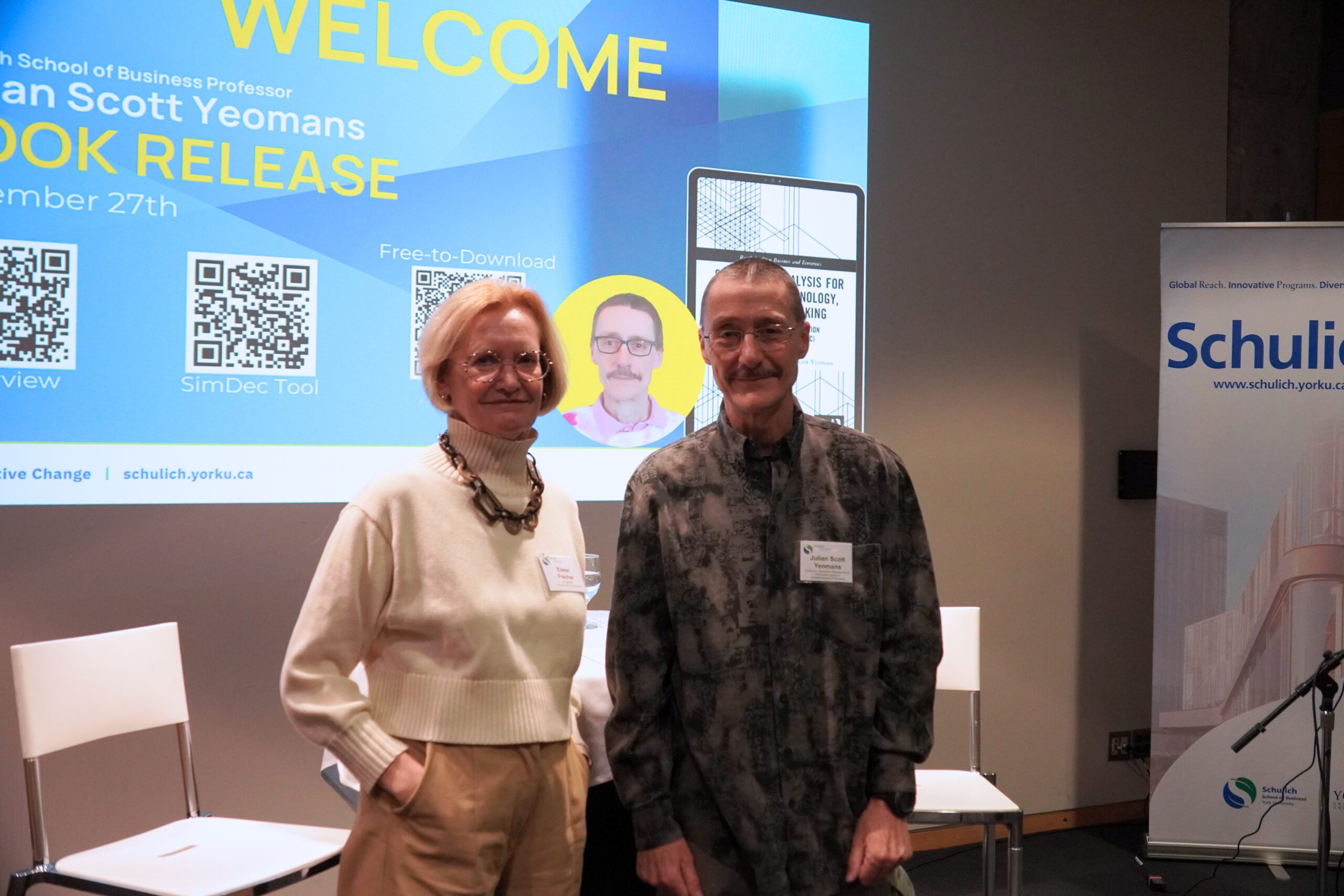Schulich Prof. Julian Scott Yeomans Presents Groundbreaking New Sensitivity Analysis Book

On Wednesday, November 27, Schulich School of Business Professor, Julian Scott Yeomans (Professor of Operations Management and Information Systems), and Schulich Associate Dean of Research, Eileen Fischer, discussed a new groundbreaking sensitivity analysis technique focused on simulation decomposition called “SimDec”.

Co-created with LUT University Professor, Mariia Kozlova, Simulation Decomposition (SimDec) represents the often hard-to-discover causalities and interactions within a data set in an easy to understand graphical manner. SimDec is a “revolutionary new analytics method for visually displaying the outcomes of uncertain factor influences – their dependencies, interactions, and heterogeneous impacts”, according to professor Yeomans.
In their new open-source and free to download book, Sensitivity Analysis for Business, Technology, and Policymaking Made Easy with Simulation Decomposition (SimDec), Mariia and Julian outline how SimDec will give decision makers and data analysts the ability to conduct sensitivity analysis quickly and efficiently, and will provide actionable, data-driven insights on complex real-world problems – all without the need for elaborate statistical analysis tools.
Schulich Associate Dean of Research Eileen Fischer opened the talk by remaking “SimDec is a game changer: it’s an invaluable new approach to sensitivity analysis… Julian Yeomans goes from strength to strength as a scholar: this new chapter in his research is exciting and path-breaking.”
Professor Yeomans talked about the development of SimDec, noting that he and Professor Kozlova were motivated to create the book after noticing that “the vast majority of studies do not perform any sensitivity analysis and even those that do, tend to do it extremely poorly. By putting everything together in a self-contained SimDec book, we have created a standalone, simultaneous entry-point for using SimDec across multiple disciplines in one combined, consistent, straightforward package.”
In addition to the SimDec background explanation chapters, the book has 10 “unrelated” application chapters, discussing how SimDec has been used in a variety of settings, ranging from very small personal decision-making all the way to the rather massive data analysis of super-conducting magnets at CERN.
Professor Yeomans gave a short walkthrough of how sensitivity analysis and SimDec worked and provided a live demonstration of SimDec in action. By using the free online web dashboard , Julian demonstrated how medical analysts could use SimDec to better guide their decision-making processes when assessing patient test results.
When asked why he and his co-authors chose to publish SimDec in an open access format (unlike most statistical analysis programs), Professor Yeomans stated “We are totally committed to open science. The book is open access and completely free-to-download…There is absolutely no excuse not to try SimDec!”
An open access (OA) version of the book is free-to-download .
More information on SimDec (including links to the web dashboard, Excel tool and SimDec code packages) can be found at https://www.simdec.fi/
If you have an interest in or questions about SimDec, please feel free to reach out to Professor Yeomans at syeomans@yorku.ca or Professor Kozlova at Mariia.Kozlova@lut.fi